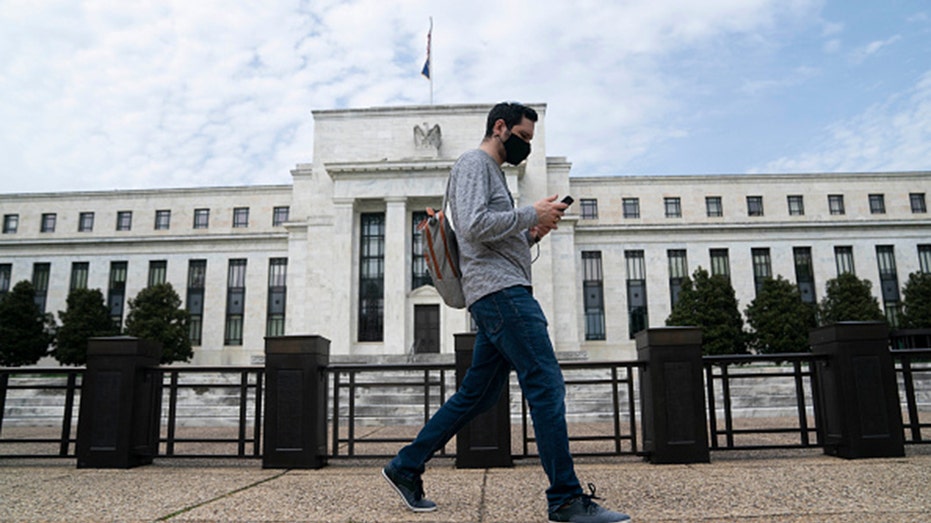March jobs report likely solidifies a big Fed rate hike next month
Fed hasn't raised rates by 50 basis points since 2000
US labor secretary on 'good' March jobs report
Labor Secretary Marty Walsh ackowledges there is 'work to do' on the jobs front, but argues overall the March employment report was 'strong.'
The March jobs report revealed another month of robust hiring, likely solidifying the case for the Federal Reserve to pivot toward a mega-sized interest rate hike as it seeks to cool red-hot inflation.
The Labor Department said in its monthly payroll report released Friday that payrolls in March rose by 431,000, slightly missing the 480,000 jobs forecast by Refinitiv economists. The unemployment rate, which is calculated based on a separate survey, fell to 3.6%, the lowest level since February 2020.
FED RAISES INTEREST RATES FOR FIRST TIME IN 3 YEARS, PROJECTS 6 MORE HIKES AS INFLATION SURGES
Wages, meanwhile, climbed 5.6% in March from the previous year, nearly double the pre-pandemic average of 3%.
The strong job growth, coupled with fast wage growth and the resilience of the U.S. economy in the face of potential threats like the Russian invasion of Ukraine, could force the Fed to tighten policy even faster – setting the table for at least one 50-basis point hike next month.

In this Jan. 29, 2020 file photo, Federal Reserve Chair Jerome Powell pauses during a news conference in Washington. (AP Photo/Manuel Balce Ceneta, File / AP Newsroom)
"For the Fed, today’s report gives them little consolation," said Seema Shah, chief strategist at Principal Global Investors. "With wage growth running so high, inflation fears are only heating up. A 50-basis point hike at the next meeting is surely secured. The only question that really remains is how many more half-point moves there will be this year."
The Fed voted in March to raise its benchmark federal funds rate by 25 basis points to a range between 0.25% and 0.5%. Officials projected at least six more, similarly sized increases over the course of this year.
But in the weeks since then, policymakers – including Chairman Jerome Powell – have floated the possibility of a more aggressive trajectory amid concerns that the central bank waited too long to begin tightening policy.
"If we conclude that it is appropriate to move more aggressively by raising the federal funds rate by more than 25 basis points at a meeting or meetings, we will do so," Powell said during an economics conference in Washington, D.C., last week. "And if we determine that we need to tighten beyond common measures of neutral and into a more restrictive stance, we will do that as well."

A man wearing a mask walks past the U.S. Federal Reserve building in Washington D.C., the United States, on April 29, 2020. ((Xinhua/Liu Jie via Getty Images) / Getty Images)
Powell also hinted that Fed officials could proceed as early as their next meeting in May with starting to unwind the central bank's nearly $9 trillion balance sheet
Prices rose 7.9% in February from the previous year, marking the fastest increase since January 1982, when inflation hit 8.4%. The CPI – which measures a bevy of goods ranging from gasoline to health care – rose 0.8% from January.
Traders are now pricing in more than a 70% chance of a hefty half-point rate jump when policymakers meet next month, instead of a more modest quarter-point increase, according to the CME's FedWatch tool.
It would mark the first time since 2000 that the U.S. central bank raised the federal funds rate by 50 basis points.
GET FOX BUSINESS ON THE GO BY CLICKING HERE
Fed Governor Christopher Waller, during an interview on CNBC last week, also said he believes the Fed needs to "front-load" interest-rate increases, although he voted for a 25-basis-point move in March due to uncertainty from the Russian invasion of Ukraine.
"The data is basically screaming at us to go 50, but the geopolitical events were telling you to go forward with caution," he said, adding: "Going forward that will be an issue whether to think about going 50 in the next couple of meetings or not. But the data certainly seem to suggest that we move in that direction."





















